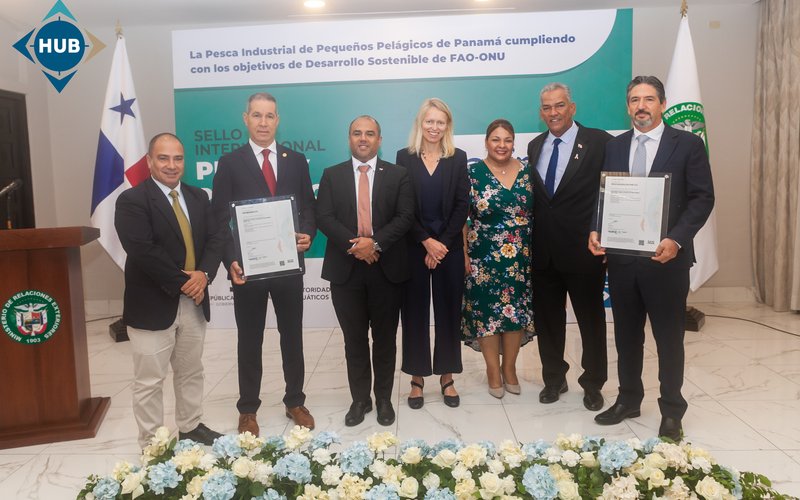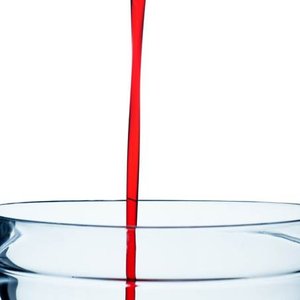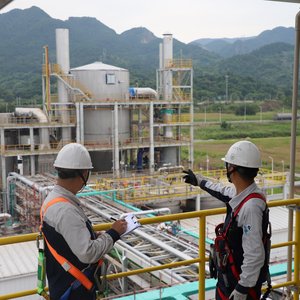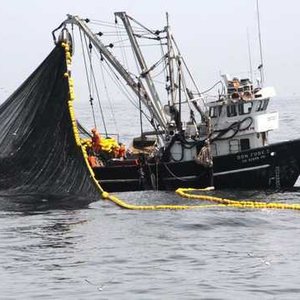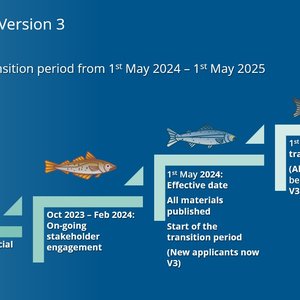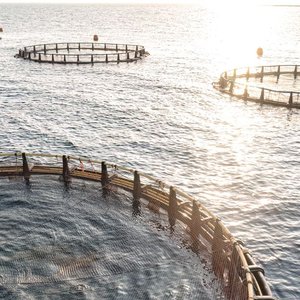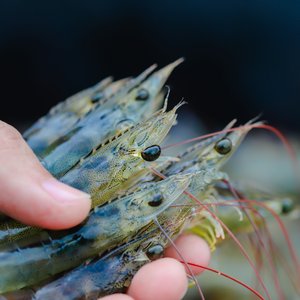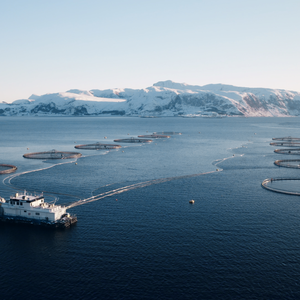At a ceremony, which recently took place at the Foreign Ministry of the Republic of Panama, MarinTrust’s executive chair Libby Woodhatch, thanked all the stakeholders who collaborated in the improver program for the Panama small pelagics fishery and marine ingredient manufacturing.
The Fishery Improvement Project (FIP), which was started in 2011 as an initiative of CeDePesca, a non-profit organization, along with the local producer Promarina, was the first of its kind project to be accepted into the MarinTrust Improver Programme (IP) and it is now run in conjunction with Probasa.
The FIP led the Panamanian fishery to important improvements, including a new management plan, the setting of total allowable catches, and an onboard observer program to document the size and sexual maturity of the target species. Moreover, through the FIP, Panamanian fishery also started to recollect data about endangered species to regularly train fishermen about their release.
“Back in the 2010s, the Panama small pelagics fishery was data poor, with inadequate records of effort or landings, and nothing was known about its impacts on the ecosystem. The market had started demanding third-party proof of sustainability, so something needed to be done,” said Ernesto Godelman, executive director of CeDePesca, the non-profit organization which initiated the project.
The obtained MarinTrust certification is the result of the fishery passing the full MarinTrust fishery assessment and the associated processing plant passing a third-party audit by a certification body.
“This thorough process ensures not only that marine ingredients come from non-IUU fisheries that are managed in accordance with the FAO Code of Conduct for Responsible Fisheries but also that production is carried out to high standards of safety and quality, with sufficient care given to the environment, workforce, and local community,” said Nicola Clark, impacts manager at MarinTrust.
“The fishery mainly targets Pacific anchovy and Pacific thread herring. Today, Europe buys the majority of the fish oil for use in the salmon feed industry, while China, North America, and countries neighboring Panama are the main market for fishmeal, which is used in swine, aquaculture, and pet food diets,” said Brian Murtagh, managing director AnimalFeed, who coordinated the IP.
Through the certification, marine ingredients elaborated from Fishery Improvement Project’s raw materials may be sold as MarinTrust Improver Programme products, and the processing plants that manufacture them can claim the MarinTrust certification and use the MarinTrust logo.
Yet, once certified, processing plants are required to have annual surveillance audits as part of the three-year certification cycle and must undergo a recertification audit every three years in order to maintain certification status. The fisheries assessment component of the standard includes an annual surveillance audit and full re-assessment every three years.
“This recognition is the result of more than seven years of hard work in the fishing sector and an indication that our nation guarantees good practices in the industry, consolidating investments that focus their strengths on consistent improvements, in the short and medium term, aligned with the interests of conscientious consumers committed to nature around the world. This achievement that we obtain today goes hand-in-hand with the regulations that promote the protection of marine species, in balance with a sustainable fishing activity that generates wealth, employment, and a secure source of food. Panama demonstrates that it adapts to the demands of the 21st century’s society, adopts legislation that promotes the protection of marine resources and ensures compliance,” said Flor Torrijos, general administrator at Panama’s Fishery and Aquatic Resources Authority (ARAP).


